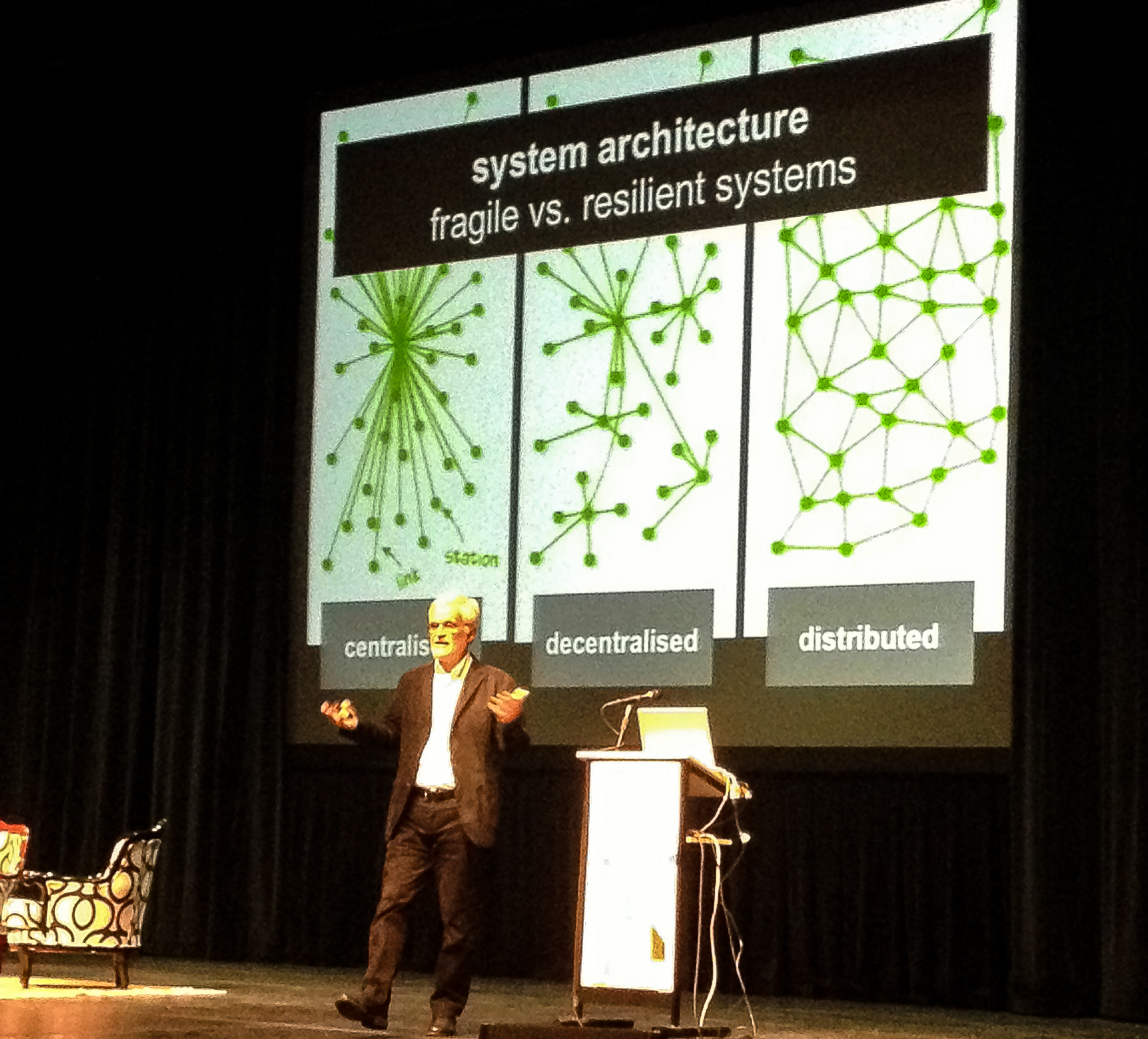As words become trends their meaning is stretched. The word resilience has shifted from describing the scientific characteristics of materials- to the shape and architecture of systems. Living in a complex, social and technical system requires looking at the systems to determine if it is resilient or not, for example is the system capable of handing stress or will it collapse. Ezio Manzini for more than two decades has worked toward designing systems that address social quality and the environment, which includes resiliency. Resiliency is a precondition to sustainable design, says Manzini. Designing systems for society is not new. The newness comes into action when collaborating with people who are going to use the system and the way the system is developed. At Compost Modern 2013, Ezio Manzini presented briefly on system architecture. Manzini illustrated how centralized systems are fragile and how distributed systems are resilient. For example a utopian distributed energy system would be that each home would produce energy into the grid. Imagine isolating power outages not to a neighborhood or block, but only a few homes if that. The technology is there, it’s now a waiting game-for older systems to die out.
Currently Manzini is the International Coordinator for the DESIS Network, Design for Social Innovation and Sustainability. Manzini is also an honorary guest professor at the Tongji University, in Shanghai, the Jiangnan University, in Wuxi, and at the COPPE-UFRJ, in Rio de Janeiro. Manzini’s 2012 awards include the Sir Misha Black Medal, in UK, and the honorary doctorate at Aalto University, in Finland.
For more information visit; http://www.desis-network.org/news

